New
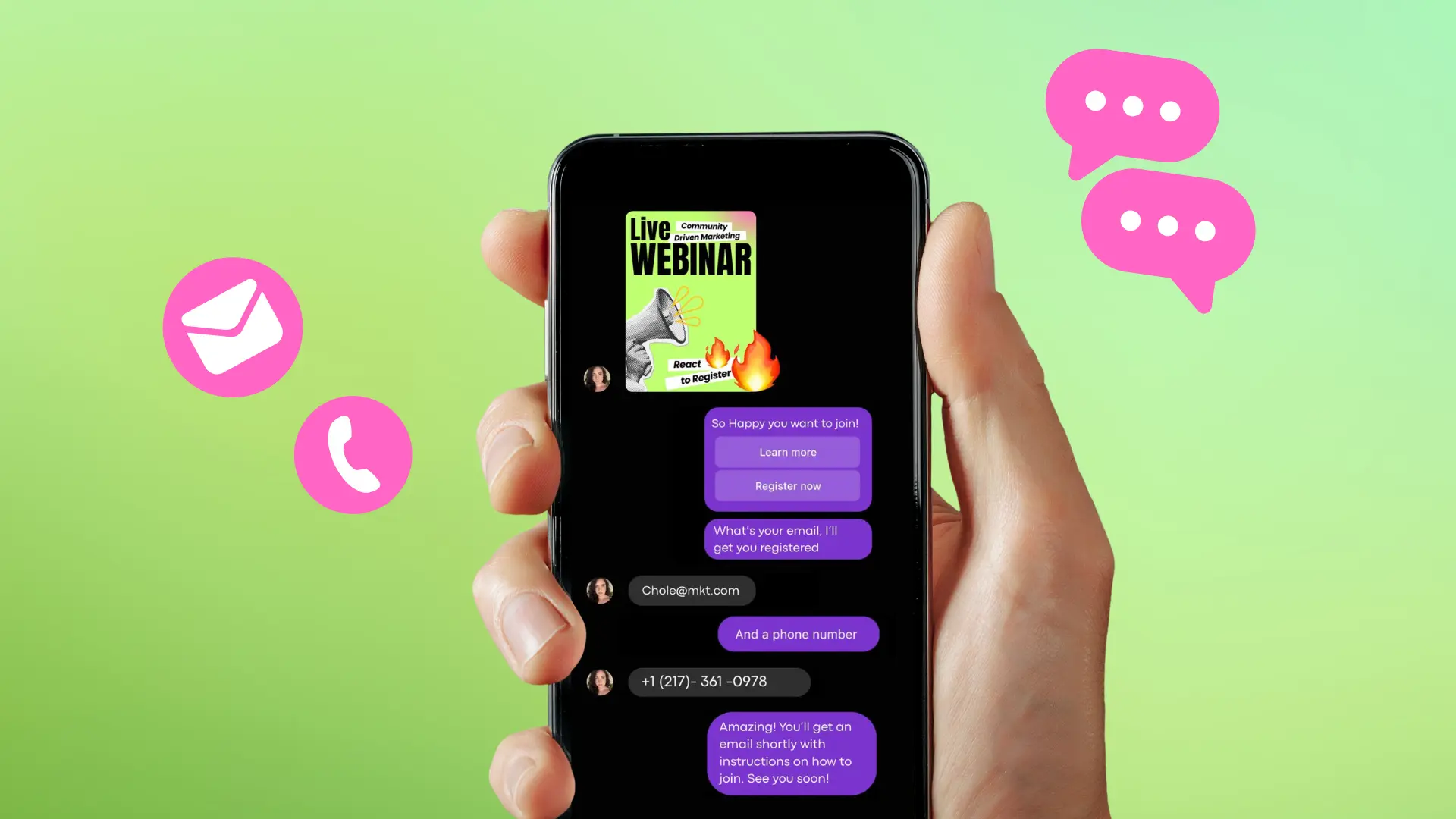
Turn Your DMs Into Lead Gen!
Learn how to collect lead data from your DMs such as email addresses, phone numbers, and more right from your social inbox. If you are not yet automating your DMs your competitors are outpacing you.

How Something Social Saved 75% of Their Time and Increased Revenue by 15%
See how a fast-growing agency improved operations, cut down hours of manual work, and unlocked new revenue opportunities with Vista Social.
New
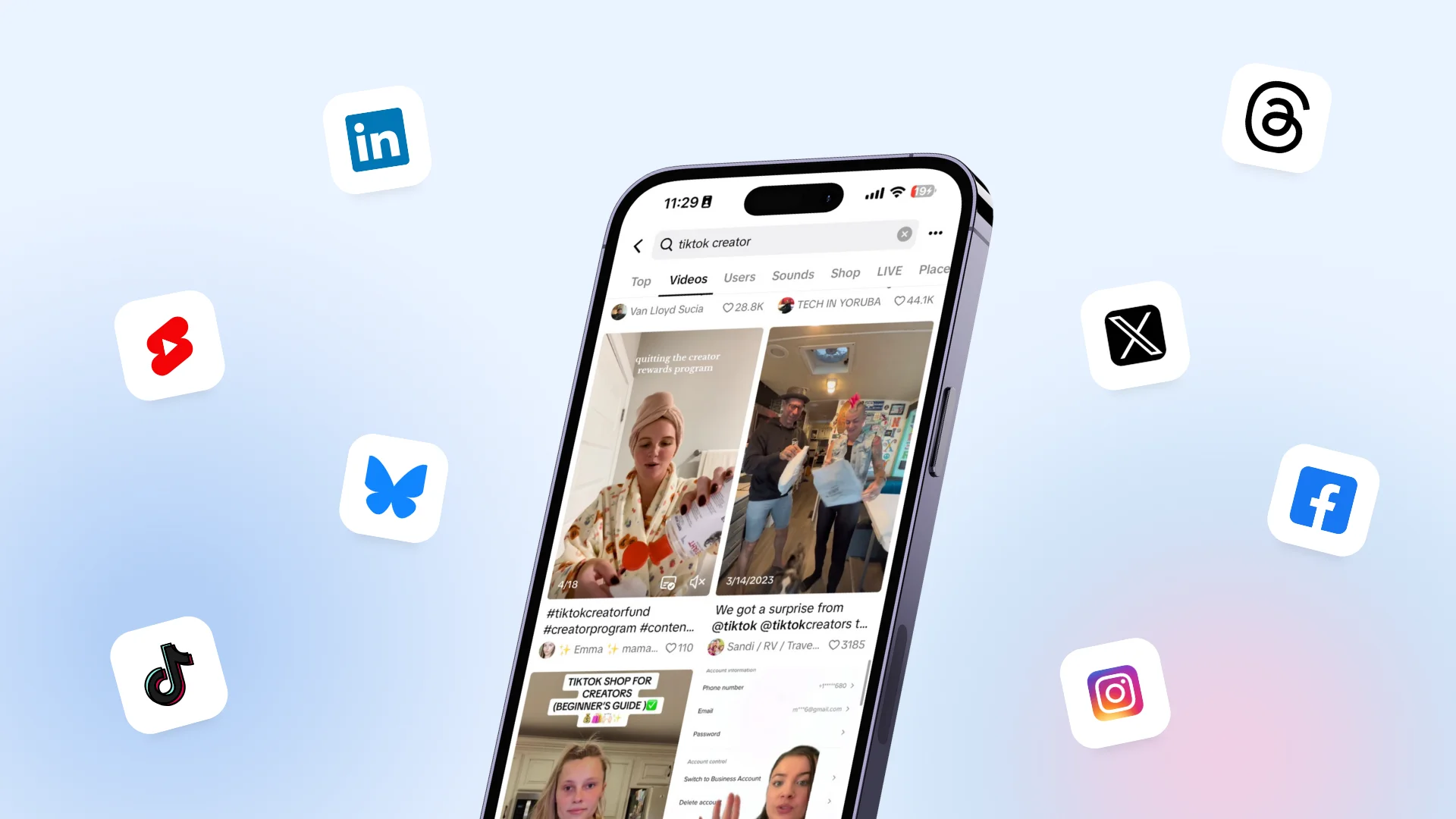
50 Unique Social Media Ideas for Consistent Content Creation
Discover 50 unique social media post ideas to engage your audience, grow your brand, and maintain a consistent content strategy with ease!
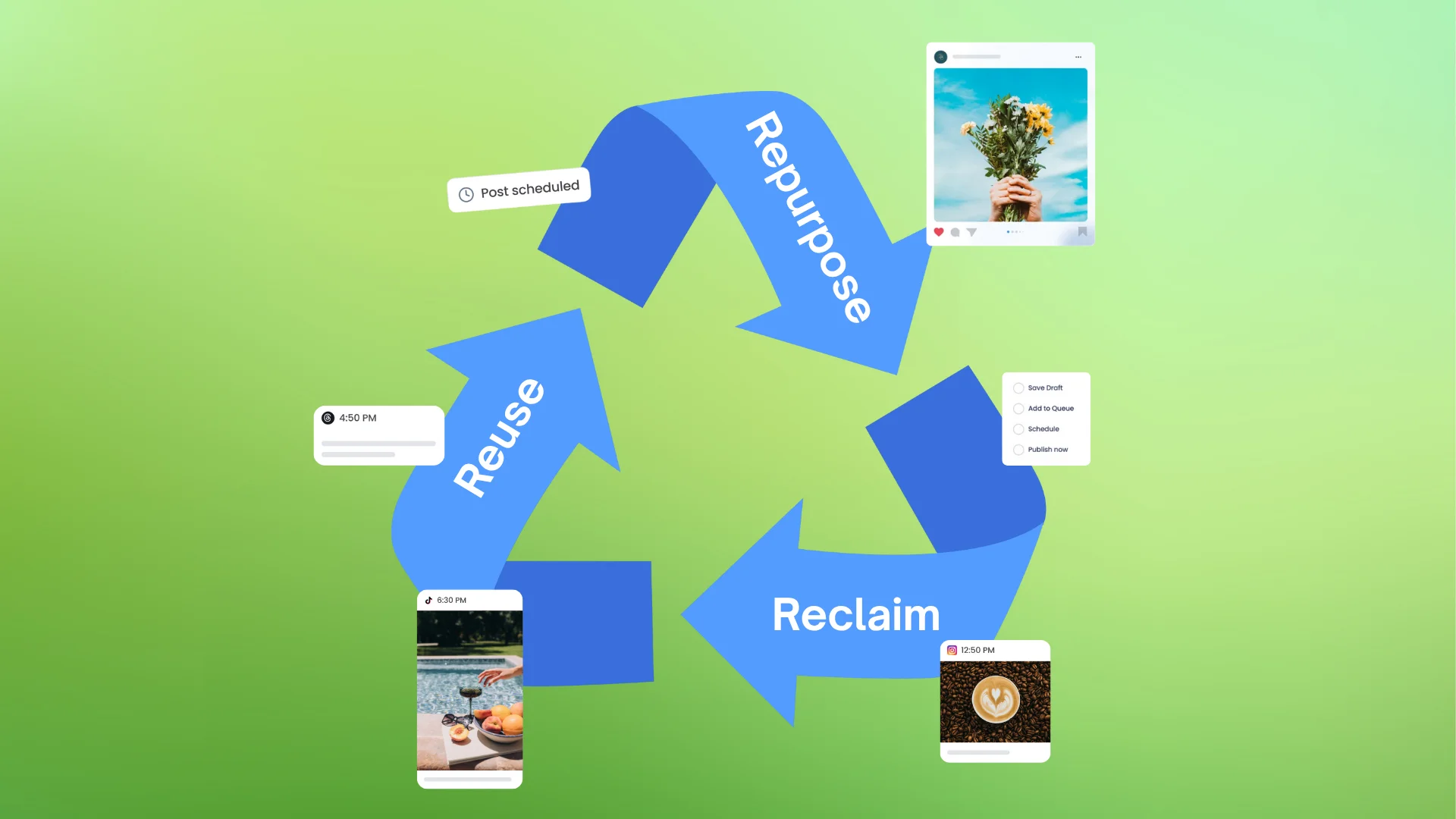
Mastering Content Reuse: The Key to a Consistent and Sustainable Posting Strategy
Summarize with AI
ChatGPT
Claude
Perplexity
Share
Vista Social
X (Twitter)
Table of contents
Summarize with AI
ChatGPT
Claude
Perplexity
Share
Vista Social
X (Twitter)
You’re only going to hit your audience and get them to actually understand your product, your service, what you stand for, what you believe in, if you can speak their language. In today’s world, when we think of marketing products that have features, products that have certain explanations right to these features, the difficulty of marketing that is because the world is now consuming information in ways that it is almost unable to absorb or digest information that is informational.
In order to, and if you notice, some of the bigger brands are no longer sort of brandishing their features. They have Instagram profiles full of short clips on fun things, memes, with an idea being that that’s how people are consuming content. And I think we’ve been facing some of those challenges as well. Even the most best-intentioned post may not get that.
Table of contents
The Reading Crisis: From College to Content
So I recently read an article in Atlantic around how college students entering college, how professors noticed that college students can’t handle reading assignments. And upon some research, these professors in the article, they got together and it turned out that it wasn’t just like a one-off situation in Columbia, one-off situation in Harvard where this was an issue. This was a systemic issue. And they looked into it. It turned out that starting in the middle school, the reading volume has dropped so significantly that by the time they reach college, they just physically cannot handle reading assignments.
So I wonder right, if this is just sort of like this overall trend of not being able to sit down and focus on consuming the information and how you have to think when you produce content, that your content will be watched at like 1.5 times the speed while being on another device. And God forbid you take more than, you know, 15, 20, 30 seconds of somebody’s time to focus and concentrate. Is that the world we are in?
The Five-Second Hook Reality
Short-form content, the whole premise of “you’ve got 5 seconds to get someone’s attention. If you don’t have a strong hook, then they’re leaving after 3, 4 seconds.” That sort of thing, I mean, that reiterates that whole thing that the attention span and maybe even like how attractive, how crazy that hook or that intro needs to be, like, kind of ties into that, right? Because if I’m consuming content at such a quick pace of short content, short content, short content, how do I read a 3,000-page book, a 1000-page book, 500-page book?
The Frustration of Fragmented Content
Do you find yourself scrolling through shorts on YouTube often? Okay. So I wonder if my experience will resonate with you or not. I don’t do it often. But listen, on occasion, I don’t even know why I do it, but I think it’s because I have a phone and there’s nothing to do for a few seconds. I just scroll through it. And one observation that I make is that I get irritated after doing it for a while because the content is not long enough. So let’s say I come across like a clip that I do like, let’s say it’s like a clip from a movie or something and there’s only like what, 30 seconds of it there? And it gets interesting. And then right when it becomes more interesting, it ends to go to the other clip, which is not only not interesting, it’s completely on a different thing.
The Fear of Being Bored
I don’t know. Sometimes I find myself, and again, this just speaks volumes about the world we are living in and what the world is sort of doing to us, right? Is that I look at the media, maybe there is some scene in the movie there, there is very sort of long and, I don’t know, non-essential to the plot or something, or I deem to be non-essential to the plot. I actually find myself skipping through that thing.
So I’ve read somewhere that people are afraid to be bored, basically. That we’ve become afraid to kind of have not sort of be with ourselves, be without, with our mind sort of just wondering, uh, endlessly with thoughts and whatnot.
Political Messaging in the Age of Shortness
So, but if that’s the case, when is that time to contemplate? When is that time to really make decisions done? So the time is then shortened. So I think it just goes to the shortness of the opinions. And nowadays with, let’s say, politics, um, with the sort of the election just wrapping up, you have one side of the spectrum producing galvanizing messaging that is very short, curt, very cut, oftentimes not very complete, going after the emotional and sentimental kind of values versus the other side is continuing with the thoughtful, agree or disagree, I’m not at all suggesting that one side is sort of more right than the other, but it’s just different format, right?
The Algorithm Echo Chamber
Um, somehow, by the way, I’ve heard 2017 somewhere as being like the pivotal point. And 2016 to be like the pivotal point of polarization of the society. Like, the fact that we’ve become so agitated by ideas maybe and our views have become so polarized. And as I was thinking about what could have happened back then, um, presidential election on one hand, maybe. But it could, it could have been like this perfect storm, right? So 2017 and 16, this is eight years into social networks in a big way.
Eight years into it, the algorithms are at that point probably a few years running algorithms. I mean, the ones that recommend content, right? And the recommended content is always aligning with what you already like, with what your friends already liking, right? It’s not something that existed before, right?
The Democratization of Influence
But that’s that’s a good point. We’re all fed the same thing. Um, very similar ideas, very similar concepts, then the products certainly to follow, right? Because they’re going to serve an ad based on a profile, right? And if someone’s selling a specific color shoe that day at that moment, and 15 other people who have similar profilers you just saw it, I mean, we can get there, we can get there.
And I guess it’s an interesting point because I guess the question is, is it easier or harder, right, to compete on ideas these days? On the one hand, it’s more difficult, right? Because people are entrenched into certain ideas. And again, ideas are very broad term, right? Political ideas, product ideas, habits, you know, whatever. But at the same time, there is also this significant degree of, um, uh, democratization of ability, right? All of a sudden, a small brand can easily penetrate the market with the simple use of proper influencers.
The New Marketing Reality
Yeah, and it’s evolving. And I think that’s kind of full circle there where you can’t expect to communicate or market the same way that you are today, let’s say 10 years from now, just like you can’t expect the same strategies that worked 10 years ago. So why would you communicate, right? Like, we have to adapt, we have to evolve with our strategies of marketing, just like communication.
Yeah. If our audience no longer listens to 45-minute long podcasts, then we, we are at 19 by the way. Uh, these are probably going to be shorts. This is probably going to be a full up episode, it’s going to be short.
You’re right. But I think that imagine if marter 20 years ago was asked to create a marketing campaign, uh on a budget that competed with some large product, it would be impossible. Yeah. Because basically you would have to buy a billboard or you’ll have to, I don’t know, uh buy ad space on TV, millions of dollars, right?
Today, not a problem. Like, you can be as small as you want and you will compete and you will actually succeed if the other side doesn’t isn’t, you know, watching carefully, you know, you can easily develop a very successful business and successful marketing execution, possibly even without any budget, right? I mean, listen, the organic is still kind of very, very powerful if done right.
Um, so again, I think the world has definitely changed, but for the marketers and that sort of is, um, for whom we are building our products, I think the world has become just so much more exciting.
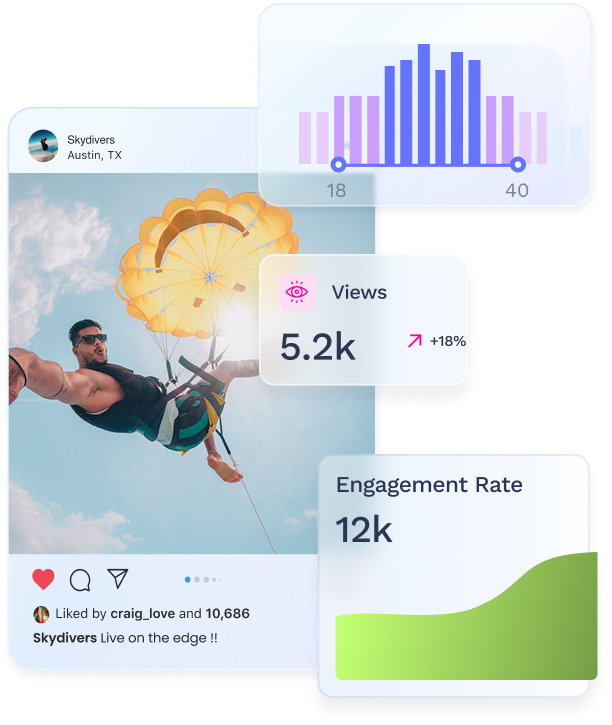
Try Vista Social for free
A social media management platform that actually helps you grow with easy-to-use content planning, scheduling, engagement and analytics tools.
Get Started NowAbout the Author
Content Writer
Russell Tan is a content marketing specialist with over 7 years of experience creating content across gaming, healthcare, outdoor hospitality, and travel—because sticking to just one industry would’ve been boring. Outside of her current role as marketing specialist for Vista Social, Russell is busy plotting epic action-fantasy worlds, chasing adrenaline rushes (skydiving is next, maybe?), or racking up way too many hours in her favorite games.
Read with AI
Save time reading this article using your favorite AI tool
Summarize with AI
Never Miss a Trend
Our newsletter is packed with the hottest posts and latest news in social media.
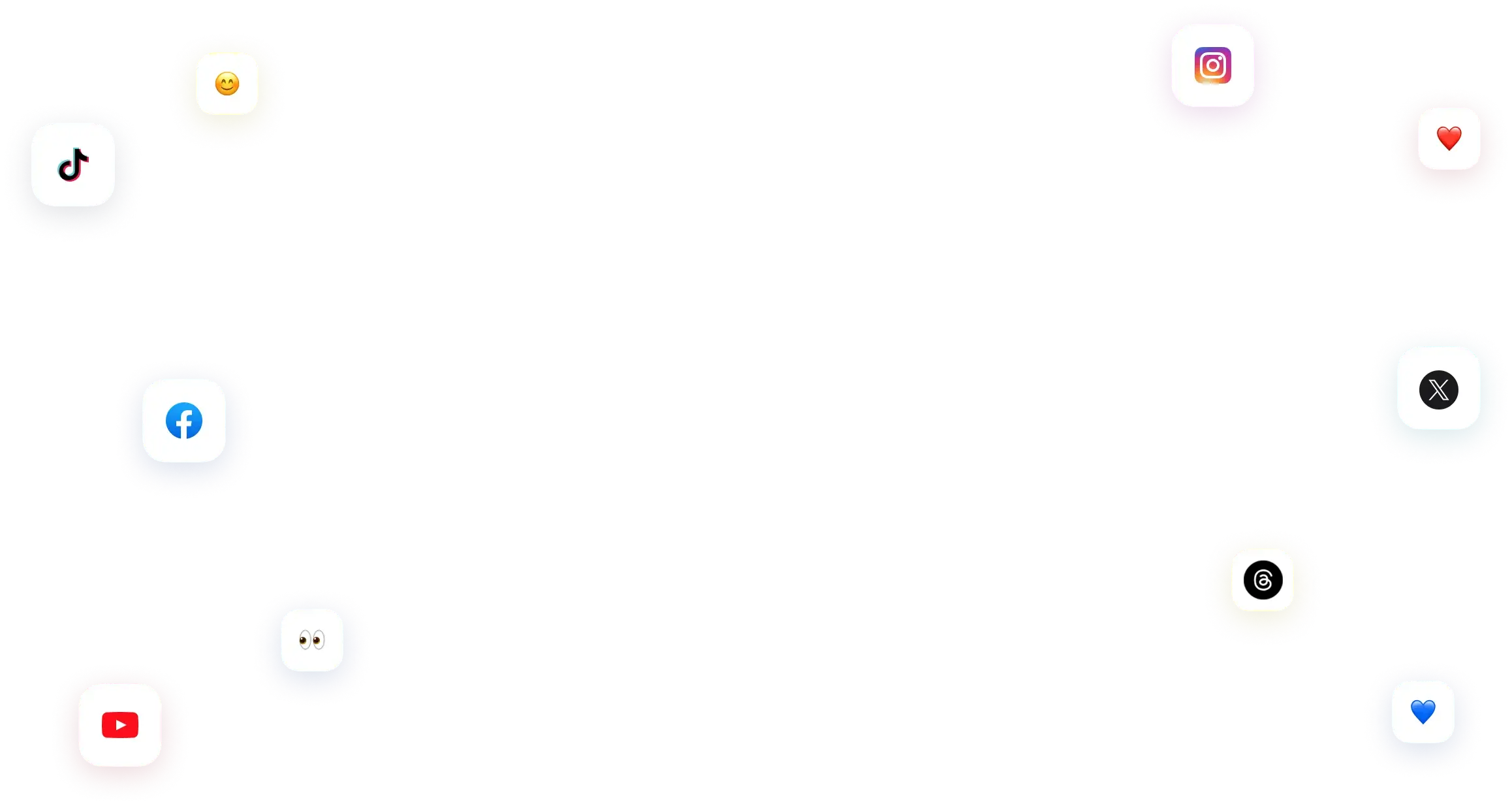
You have many things to do.
Let us help you with social media.
Use our free plan to build momentum for your social media presence.
Or skip ahead and try our paid plan to scale your social media efforts.
P.S. It will be a piece of cake 🍰 with Vista Social
Subscribe to our Newsletter!
To stay updated on the latest and greatest Social Media news. We promise not to spam you!
Enjoyed the Blog?
Hear More on Our Podcast!
Dive deeper into the conversation with industry insights & real stories.



